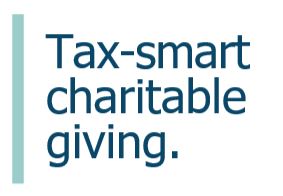
iGiftFund is uniquely positioned to offer fund options that qualify for CARES Act incentives
The CARES Act provides significant incentives for donors to consider as part of their year-end charitable giving plan – but these incentives are available only in 2020. It is important to note that Donor Advised Funds (DAFs), Private Foundations and Supporting Organizations are not eligible for CARES Act incentives.
However, iGiftFund is unique among national DAF Sponsors in that it offers a range of donor fund options that are not DAFs and thus, are eligible to receive contributions that qualify for the CARES Act tax incentives. These donor fund options, known as donor restricted funds, include:
- Designated Funds
- Field-of-Interest Funds
- Unrestricted Funds
- Charitable Endowments
- Scholarship Funds
Here is a summary of the CARES Act incentives:
» Required Minimum Distributions (RMD) – Although the CARES Act waives RMDs for calendar year 2020, clients can still elect to take distributions from a traditional IRA starting at age 70½. By taking a Qualified Charitable Distribution (QCD), clients can virtually eliminate taxes on these distributions.
A QCD is a direct transfer of funds, up to $100,000 (same for an eligible spouse), from a traditional IRA, payable directly to a qualified charity regardless of RMDs. When RMDs are reinstated in 2021, or when the client reaches age 72, amounts distributed as a QCD count toward satisfying RMDs.
» For clients who elect not to itemize – The CARES Act allows an above-the-line deduction for charitable contributions of cash, up to $300 per individual taxpayer/$600 for eligible couples filing jointly. This provision should help clients:
- who elect not to itemize and thus might not otherwise make charitable
- whose charitable contributions already exceed AGI Since it is considered an above-the-line deduction, the $300 reduces the client’s Adjusted Gross Income (AGI).
» For clients who elect to itemize – Prior to the CARES Act, amounts claimed as deductions for charitable contributions of cash were subject to a limit of 60% of adjusted gross income (AGI). The CARES Act increases AGI limits for cash contributions by individual donors. Now, individuals can deduct up to 100% of their AGI for cash contributions – but only for 2020. The 30% AGI limit for non-cash contributions remains in force.
» For corporate clients– The deduction for charitable gifts has increased from 10% to 25% of taxable income for corporations.
» For clients considering a Roth Conversion – The CARES Act makes Roth conversions more attractive. Roth conversions are taxable as ordinary income. If your client contributes to a qualified charity in the year of a Roth conversion, the client can claim deductions under the CARES Act for charitable contributions of cash up to 100% of AGI as an offset to the increase in federal taxable income resulting from the Roth conversion. This may be a tax-smart strategy for clients 59½ and older who are planning a large charitable contribution in 2020.
Existing 5-year carryover rules still apply. To take advantage of the increased AGI limit on qualifying cash contributions, clients must make an election, and complex ordering rules for AGI limits may apply.
Clients should consult with their tax and legal advisors to maximize the advantages of these charitable giving strategies.
To learn more about these creative fund options, call us at 1.800.810.0366.
For a PDF version of this page, click here.
This information contained in this article is intended solely for educational purposes.
The content is not intended, and shall not be construed as professional advice (or a substitution for) including but not limited to legal, financial, tax or any other professional interpretation.
